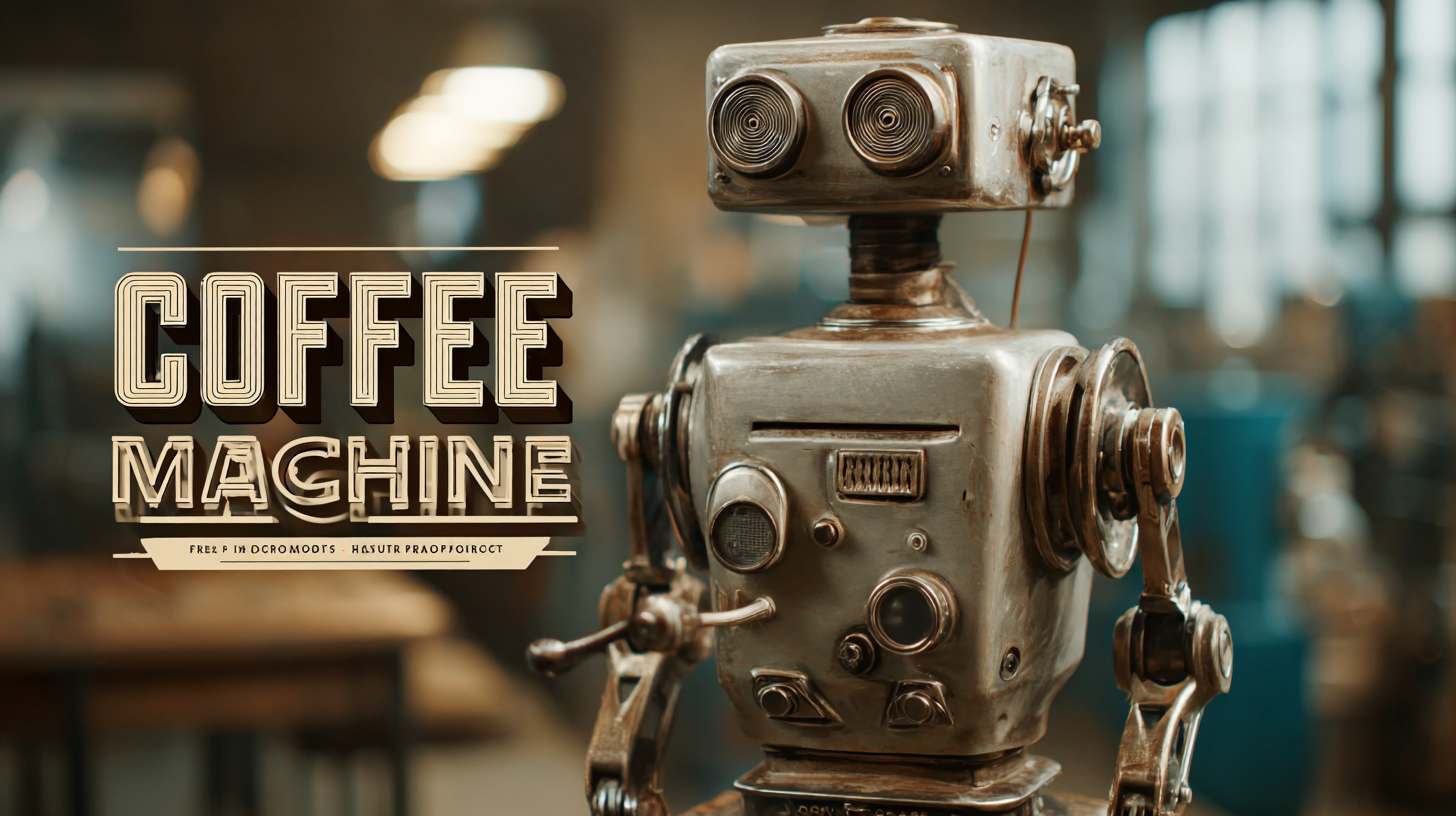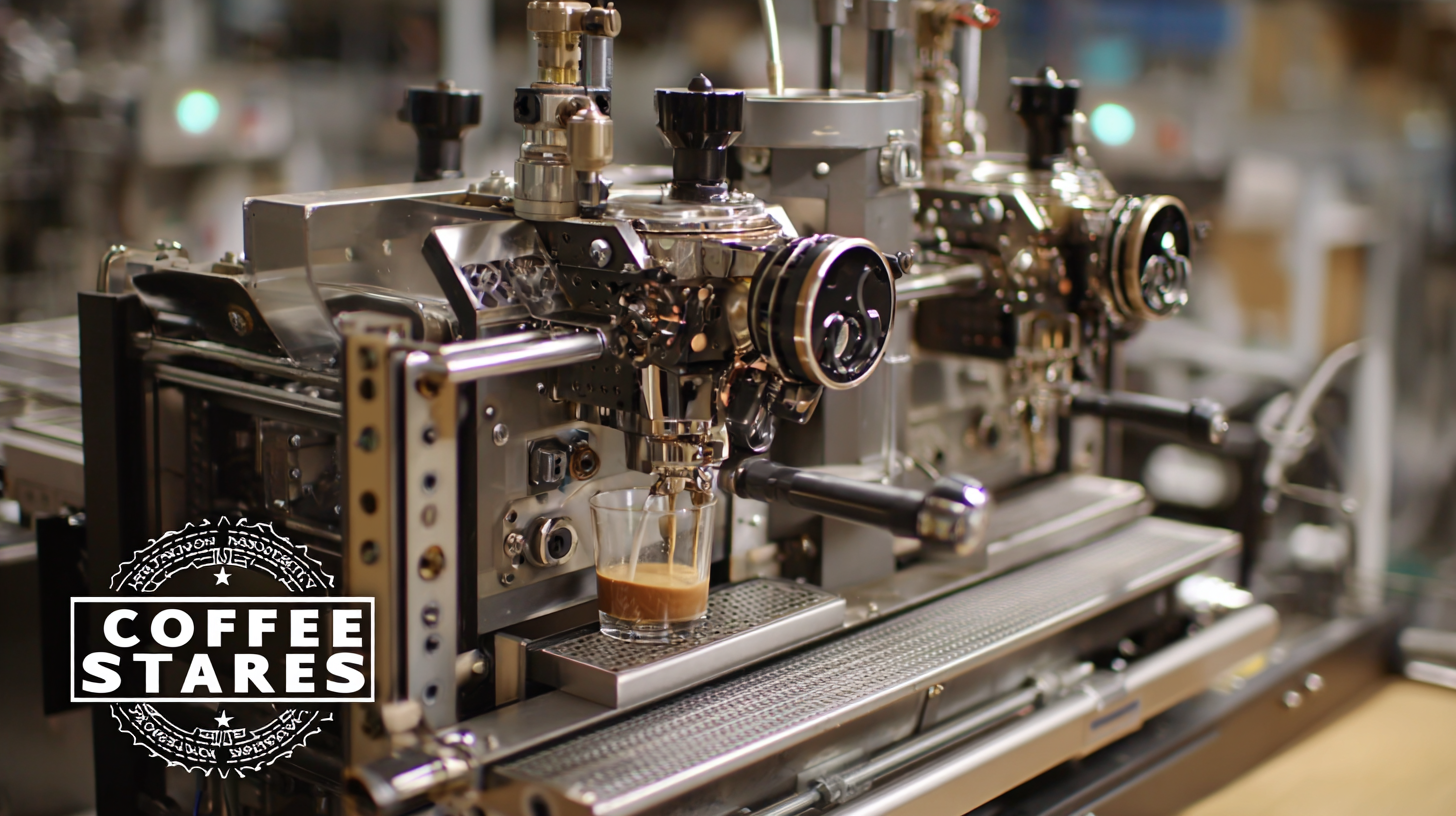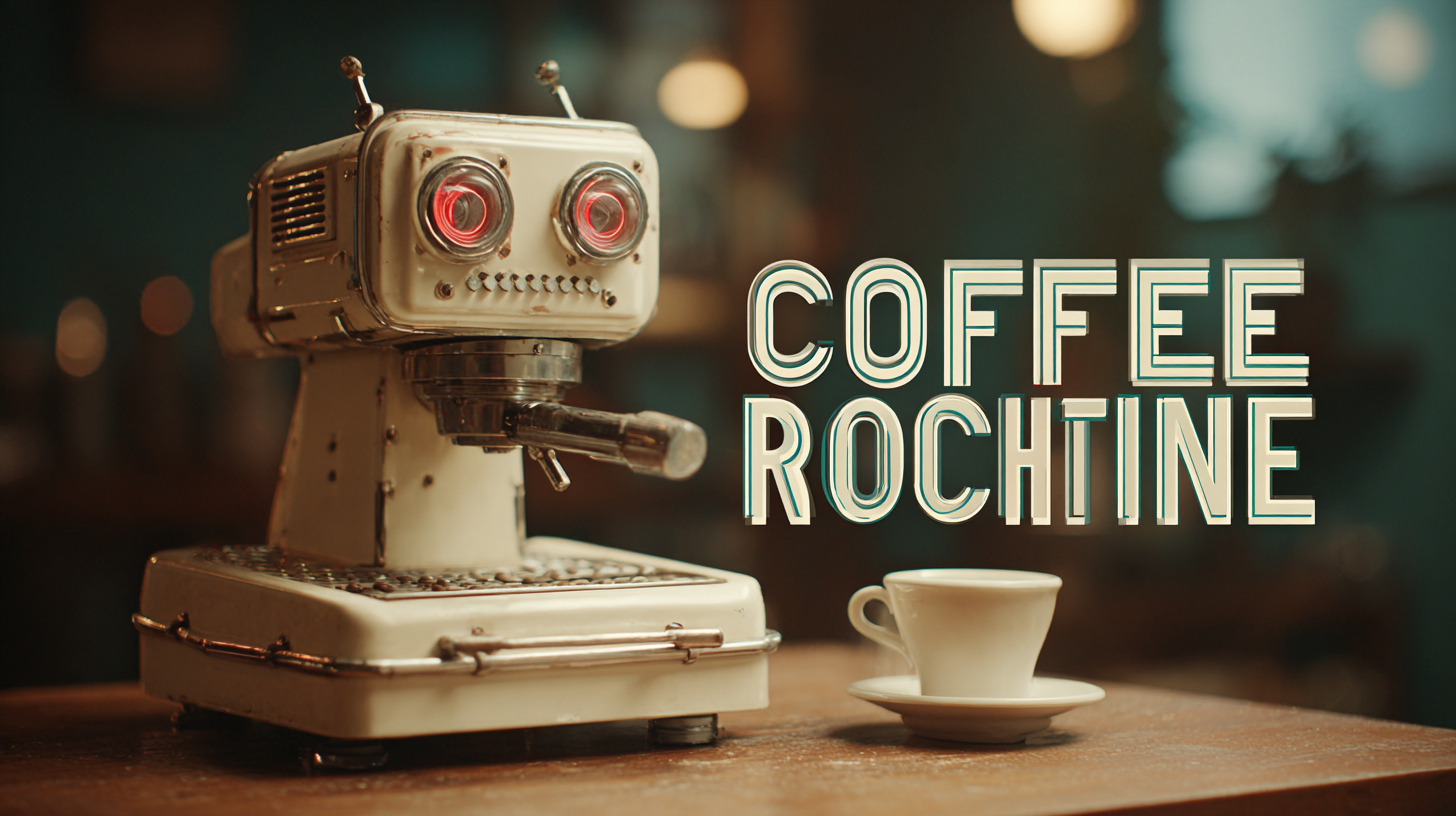Understanding Industry Standards for Best Coffee Robot Machines to Streamline Your Procurement Process
As the coffee industry continues to innovate, the rise of the Coffee Robot Machine presents a transformative solution for businesses looking to streamline their procurement processes. According to the International Coffee Organization, the global coffee market was valued at approximately $102 billion in 2020, with projections indicating significant growth, potentially reaching $155 billion by 2025. This surge is driven by the increased demand for efficiency and quality in coffee service, prompting cafes and restaurants to adopt automation solutions. The integration of Coffee Robot Machines can minimize labor costs and enhance customer satisfaction, making it essential for stakeholders to understand the industry standards that govern these technologies. This blog will delve into pivotal market analyses and provide actionable tips to aid procurement decisions, ensuring that businesses can leverage these cutting-edge machines effectively.

Key Features of Commercial Coffee Robots: What to Look For
When selecting a commercial coffee robot machine, key features play a significant role in ensuring efficiency and quality. First and foremost, consider the machine's brewing precision. High-end coffee robots come with programmable settings that allow for consistency in flavor and temperature, crucial for maintaining quality across large volumes of coffee. Opt for models that utilize advanced brewing technology like pressure profiling and real-time adjustments, which can greatly enhance the coffee extraction process.
Another essential aspect is the machine's ease of use and maintenance. A user-friendly interface makes it simple for staff to operate, while automatic cleaning cycles save time and reduce the need for manual upkeep. Look for coffee robots that provide detailed diagnostics and alerts to facilitate proactive maintenance, ensuring minimal downtime and optimal performance.
Tip: Before making a purchase, test the coffee robot with different types of beans and brewing styles to evaluate its versatility. Tip: Always check for warranty and customer support options to ensure that your investment is protected and any operational issues can be swiftly addressed. Quality coffee robots empower businesses to elevate their offerings while streamlining the procurement process.
Types of Coffee Robots: Choosing the Right Machine for Your Business
When considering coffee robots for your business, it's crucial to assess the various types available on the market. There are primarily three categories: traditional espresso machines, fully automatic machines, and specialty coffee brewers. According to the Specialty Coffee Association, the global market for coffee equipment is projected to reach $4.1 billion by 2025, indicating a growing demand for advanced coffee-making technologies. Traditional machines appeal to artisanal coffee shops that prioritize manual brewing techniques, while fully automatic machines are perfect for high-volume settings where speed and consistency are paramount.
Moreover, specialty coffee brewers have emerged as a game-changer, providing innovative features that cater to the fine coffee segment. Market research by IBISWorld shows a significant uptick in consumer preference for gourmet coffee experiences, leading to a rise in cafes investing in high-end brewing systems. Understanding the specific needs of your establishment, whether it's a small bistro or a large café chain, will assist in selecting the right coffee robot. Investing in the appropriate technology not only enhances the efficiency of your procurement process but also addresses evolving customer preferences in the ever-competitive coffee industry.
Understanding Industry Standards for Best Coffee Robot Machines
| Machine Type | Key Features | Suitable For | Price Range (USD) |
|---|---|---|---|
| Automatic Espresso Machine | Built-in grinder, customizable settings, milk frother | Cafés, restaurants | $800 - $3000 |
| Single Serve Machine | Quick brew, pod-based, minimal maintenance | Offices, small coffee shops | $50 - $300 |
| Commercial Drip Coffee Machine | Large capacity, programmable, durable | Large offices, restaurants, buffets | $200 - $2000 |
| Coffee Vending Machine | Self-service, multiple beverages, cashless payment | Airports, schools, offices | $1500 - $5000 |
| Cold Brew Coffee Maker | Infuser, user-friendly, large capacity | Coffee shops, events | $100 - $600 |
Comparing Automatic vs. Semi-Automatic Coffee Machines
 When considering coffee machinery for your business, understanding the differences between automatic and semi-automatic coffee machines is crucial. Automatic machines offer convenience and speed, making them ideal for high-volume settings where consistency is key. With a simple push of a button, these machines take care of the entire brewing process, allowing baristas to focus on customer service rather than the technical aspects of coffee preparation. This efficiency can significantly streamline operations, particularly in busy cafés or restaurants where time is of the essence.
When considering coffee machinery for your business, understanding the differences between automatic and semi-automatic coffee machines is crucial. Automatic machines offer convenience and speed, making them ideal for high-volume settings where consistency is key. With a simple push of a button, these machines take care of the entire brewing process, allowing baristas to focus on customer service rather than the technical aspects of coffee preparation. This efficiency can significantly streamline operations, particularly in busy cafés or restaurants where time is of the essence.
On the other hand, semi-automatic machines provide a balance between control and automation. While they require the barista to oversee certain aspects of the brewing process, such as grinding and tamping, they still simplify others, like water delivery. This gives skilled baristas the opportunity to showcase their expertise, ensuring that each cup of coffee meets a high standard of quality. For establishments that prioritize craftsmanship and flavor, investing in semi-automatic machinery may yield a better return on investment, as it allows for more personalized servings and experimentation.
Guidelines for Evaluating Coffee Robot Vendors and Their Offerings
Evaluating coffee robot vendors and their offerings is crucial for businesses looking to enhance their procurement process. A recent industry report indicates that automated coffee solutions can increase efficiency by up to 30% while reducing operational costs by 20% in high-demand environments. When assessing potential vendors, it's essential to analyze their technology, support services, and customer feedback to ensure they meet the specific needs of your operation.
**Tip:** Always request a demonstration of the coffee robot to better understand its functionality and ease of use. Pay attention to the machine's ability to handle different coffee types and its integration with existing systems.
Additionally, consider the vendor's reputation in the market. A survey from the National Coffee Association revealed that 78% of businesses prefer vendors with a proven track record for reliability and excellent customer service. Analyzing online reviews and seeking references can provide valuable insights into the performance and durability of the coffee robots you are considering.
**Tip:** Look for vendors who offer comprehensive training and support after purchase. This ensures that your team can efficiently use the machines, maximizing their potential and your investment.

Streamlining Your Procurement Process for Coffee Machines: Best Practices
When it comes to procuring coffee machines for your business, streamlining the procurement process can make all the difference. One of the best practices is to establish clear specifications and requirements based on your operational needs. This includes understanding the volume of coffee you serve, the types of beverages you offer, and any unique features that may enhance efficiency, such as single-serve options or automated maintenance systems. By outlining these criteria from the beginning, you ensure that your selections align perfectly with your operational goals.
Another key practice is to engage in comprehensive market research to identify industry standards and reputable brands. This not only helps in finding machines that meet your specifications but also ensures you are investing in technology that adheres to the latest quality and safety standards. Attending industry trade shows or consulting with professionals can provide valuable insights into the performance and durability of various models, allowing you to make informed decisions. By following these practices, you can simplify your procurement process, reduce potential risks, and ultimately enhance your coffee service operations.